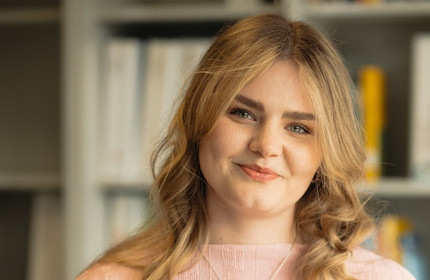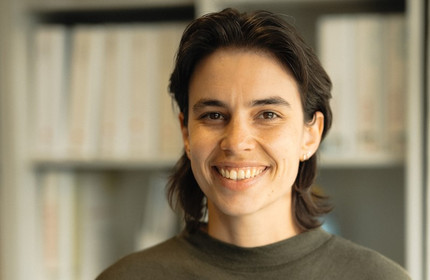International Experimental and Clinical Linguistics (IECL) | Master

The English-language Master’s Program International Experimental and Clinical Linguistics (IECL) at the University of Potsdam is located at the Linguistics Department. It is a research-based program with a special focus on statistics, offering innovative instruction, combining linguistic knowledge with interdisciplinary and experimental research and an international orientation. It equips you with the ability to critically evaluate studies, conduct empirical-experimental research, make in-depth analysis of statistical data, and interpret scientific results.
| Name | International Experimental and Clinical Linguistics (IECL) |
| Degree | Master of Science and Ph.D. |
| Period of study | 4- 6 semesters/terms (2 -3 years) |
| Credit points | 120 |
| Language of instruction | English |
| Start of study (1st semester) | Winter semester (Master) |
| Campus | Golm |
| Fees & Charges | Semester fees and charges: yes (including free transportation all over Germany) Tuition fees: no |
B.Sc. Logopädie (SLT) from Germany, IECL student 2nd term„The IECL Master's program unites international students from the fields of psychology, linguistics and speech and language therapy. I therefore find the exchange of knowledge and collaborations between the students with different professional backgrounds and careers to be very multifaceted and incredibly enriching. What I also find particularly great about the IECL is the opportunity to actively gain experiences in linguistic and interdisciplinary research during my studies as part of a laboratory internship in one of the many university labs and to gain in-depth insights into the processes and work of a research team. For me, this means that the IECL Master's program at the University of Potsdam uniquely combines a comprehensive theoretical education, in which you are always encouraged to think and work independently, with the practical experience of current research on campus.“
Program Content
The IECL provides an advanced academic training in research methodology in a flexible format and prepares you for a scientific career in the areas of psycho- and neurolinguistics. The IECL has a specific focus on statistics and the neuro-cognitive mechanisms underlying language processing, language acquisition, their disorders, and their rehabilitation. You can develop your own area of interest within a research framework of first language acquisition, speech and language processing, evidence based practice in speech and language disorders, and multilingual language acquisition and processing.
Course Objective and Future Career Options
The program provides intensive, research-based training in experimental and clinical linguistics in which students can deepen and expand the knowledge, skills, and proficiencies gained in their bachelor’s studies. This includes the theoretical, methodological, and experimental and statistical foundations for scientific work, for instance as a PhD candidate, and prepares the student for a career in fields related to applied science (e.g. documentation, specialist journalism, specialist editing), research, and teaching, and work outside academia which is related to language processing, language acquisition, multilingualism, diagnostics, data science.
Please note, that tThe program does not provide basic training for working as a speech and language therapist in Germany (this requires a specific Bachelor's degree, for instance, the BSc Patholinguistics at the University of Potsdam (only in German)).
Prerequisites for Admission to the Master’s Program
The general prerequisites for enrolling in the master’s program are:
(1) a first academic degree i.e., a bachelor’s degree or the equivalent in a subject essential for the degree program in experimental cognitive sciences, or an academic degree in speech and language treatment, or an experimental degree program closely related to the field, with at least 180 CP of coursework.
(2) knowledge of experimental-empirical competences evidenced by at least:
(a) 6 credit points in statistics and / or quantitative research methods
(b) 12 credit points in the field of experimental cognitive science (psycholinguistics, neurolinguistics, cognitive psychology, neuropsychology, developmental psychology, biopsychology).
(c) 6 credit points in the area of theoretical and experimental linguistics (e.g. syntax, phonology, semantic, language processing, first language acquisition)
(3) English language skills (if it is not your first language) at least at C1 level (CEFR, Common European Framework of Reference). The necessary certificates to document language skills can be seen here.
B.Sc. Linguistics from New Zealand, IECL student 2nd term„Studying in the IECL Masters Program at the University of Potsdam has been an incredibly rewarding experience for me. The faculty, leaders in their fields, bring expert guidance and a commitment to teaching which you can't find at every university. Their dedication to our success and commitment to a positive university experience have been invaluable. The program's international dimension not only provides varied perspectives but also fosters support in navigating the intricacies of starting anew in Germany. The program's focus on experimental linguistics aligns with my academic and career goals by imparting essential skills, particularly in practical areas such as statistical data analysis and experiment design.“
Prerequisites for Admission to the Doctoral Program
Students or graduates of the Master's programme IECL or a comparable Master's program may apply for admission to the doctoral program. The examination board decides on the comparability of the content of the Master's qualification (Master's degree). The general prerequisites for enrolling in the doctoral program according to the regulations from 2019 (not yet online) are a successful completion of a relevant Master's program and a pronounced research orientation of the applicant, recognizable from the required project outline which has to be approved by the principal supervisor (see below). Note that the University of Potsdam can not offer funding for the Doctoral Program.
The application must be accompanied by the following documents:
(1) Certificate of completion or overview of all achievements to date during the Bachelor's and Master's programs
(2) Copy of the Master's thesis (or publications corresponding to the Master's thesis)
(3) Two letters of recommendation from a University professor and/or a University professor
(4) Project outline (5 pages) for a doctoral thesis/thesis that has been prepared in consultation with at least one person from the Department of Linguistics at the University of Potsdam entitled to supervise doctoral studies
(5) Promise of supervision by the principal supervising person that will be converted into a binding supervision commitment if accepted as a PhD student (according to the Potsdam PhD regulations).
Program Structure
During the four semesters (terms) of the master’s program you will earn a total of 120 credit points (CP). For additional information, please consult the subject-specific Degree Regulations or the Departmental Advisory Office.
Content and Credit Points (Master)
During the six semesters (terms) of the doctoral program you will earn a total of 180 credit points (CP).
Content and Credit Points (Doctoral Program)
Advantages at a Glance
- In-depth research-oriented training within laboratory internships
- options for specialization within different areas of experimental and clinical linguistics
The University of Potsdam has taken into account the actual conditions among students and introduced the option for part-time study into several degree programs. This also pertains to International Experimental and Clinical Linguistics. For more information, go to part-time studies at the University of Potsdam.
Application
Are you interested in becoming part of the IECL Program at the University of Potsdam? Then you should take the next step on the application pages to find out more about current application and enrollment procedures.
Contact
Department of Linguistics
Dr. Nicole Stadie | Departmental Advising
Campus Golm
Building 14, Room 2.06
This description is based in part on the information provided by the Program-Specific Regulation for the Master's/ Ph.D. Program International Experimental Clinical Linguistics (IECL) at the University of Potsdam, dated 13 January 2019 (AmBek No. 7/19, p. 378), as well as the ammendments of these regualtions.


